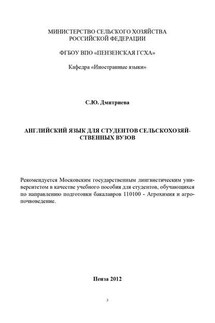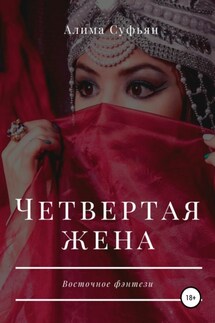Английский язык для студентов сельскохозяйственных вузов - страница 3
«е». Как правило, в таком слоге гласная читается так же как в алфавите.
Exercise 1. Read the words correctly.
a) date, lake, safe, make, take, state, plane, wave, frame, plate, mis΄take.
b) me, he, we, be, she, eve, Pete, these, theme.
c) I, hi, mine, wife, time, de΄fine, wine, like, dis΄like, a΄live, in΄vite, five,
d) no, go, home, alone, close, slope, note, ago, rose, hope, wrote, spoke, zone, pole.
e) use, re΄fuse, mule, tune, tube, ΄human, ΄student, super, a΄cute, June.
f) my, sky, why, try, type, cycle, fly, rely, apply, supp΄ly, dry, dyne, style.
!!! Remember: have [hæv], give [giv], some [s٨m], come [k٨m], live [liv], do [du:], two [tu:].
При закрытом положении слог оканчивается на одну или более согласных ( кроме r) в односложных словах, или за ударной гласной следуют две или более согласных ( кроме r) в многосложных словах. Все гласные в таком положении читаются кратко.
!!! Remember: Буква o перед m, n, th, v передаёт звук [٨]. e. g. London, Monday, son, front, month, another, mother, love, brother.
Буква u в словах: pull, full, put, push читается как [u]
Exercise 2. Read the words correctly.
a) map, sat, sad, stand, lamp, happy, apple, cat, fat, plan, bag, land, as, man, battle.
b) desk, net, next, bed, fed, red, men, ten, left, melt, send, sent, smell, best, end.
c) tip, lip, miss, will, fit, this, slim, disk, differ, win, clip, since, resist, sit, pick.
d) crop, stop, fodder, cross, on, not, pot, lot, got, offer, spot, hot, lock, dog, fog, log.
e) up, plus, cut, sun, be΄gun, bus, must, butter, bulb, pulse, number, re΄sult, ΄hundred.
!!! f) have, love, come, some, glove, dove, mother, pull, push, full, put, monk.
Чтение гласных в сочетании с “r”
!!! Remember w+ar [o: ] war, ward
w+o [ə:] work, word, world.
В безударном положении на конце слов буквосочетания: or, er дают нейтральный звук: [ ə:] instructor, worker.
Exercise 3. Read the words correctly.
a) start, smart, car, far, dark, mark, lark, star, part, ΄party, park, farm, ΄farming.
b) for, sport, thorn, storm, or, born, corn, scorn, forth, fork, pork, North.
c) fur, curl, ΄murder, hurl, burn, ΄burning, burst, ab΄surd, oc΄cur, purpose.
d) first, sir, thirsty, dirt, ΄dirty, firm, skirt, shirt, ΄circle, ΄circus, fir, girl, ΄birthday.
e) her, ΄certain, ΄certainly, in΄sert, term, ΄terminal, re΄verse, Uni΄verse, in΄ternal,
f) director, factor, worker, computer, semester, manager, fertilizer, tutor,
Чтение согласной “c”
Exercise 4. Read the words correctly.
Circle, act, cube, chalk, case, cut, match, class, cattle, customer, cucumber, chalk, chemistry, center, century, bicycle, circumstances, machine.
В английском языке в повествовательном предложении существует фиксированный порядок слов: 1 место – подлежащее, 2 место – сказуемое, 3 место – дополнение, 4 место – обстоятельство. Обстоятельство может стоять также в начале предложения (0 место). Определение является единственным членом предложения, который не имеет фиксированного положения. Оно стоит с существительным, к которому относится.
M – modifier ( обстоятельство ); S – subject ( подлежащее) P – predicate ( сказуемое ); O – object ( дополнение ); A – attribute (определение)
Некоторые обстоятельства, выраженные наречиями неопределённого времени (always, also, probably, often, seldom, never, usually, rarely, sometimes, и др.)


